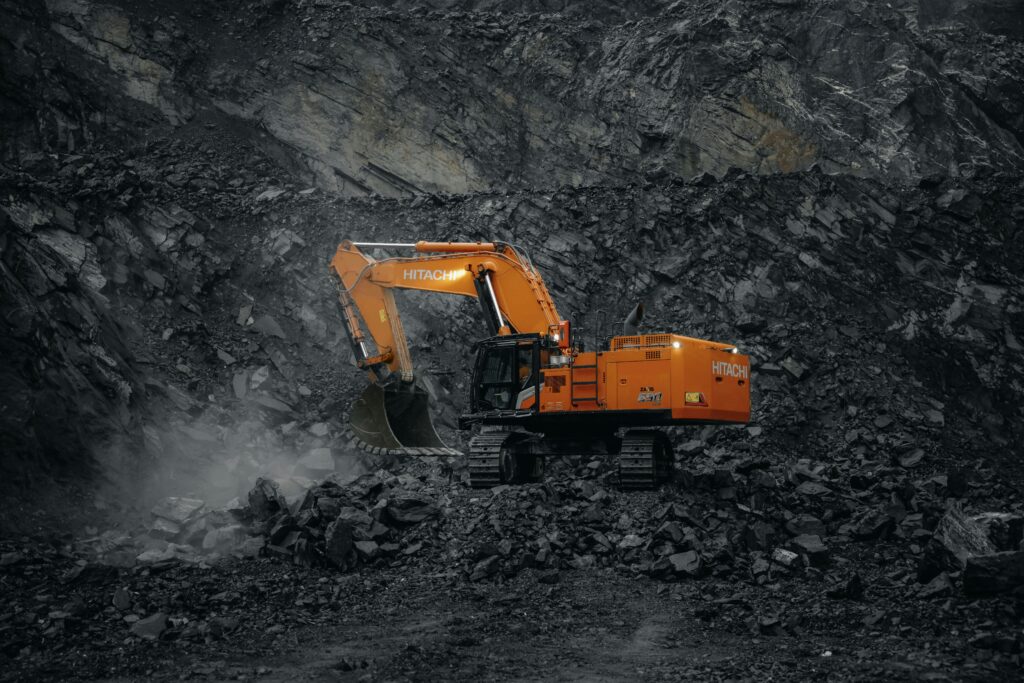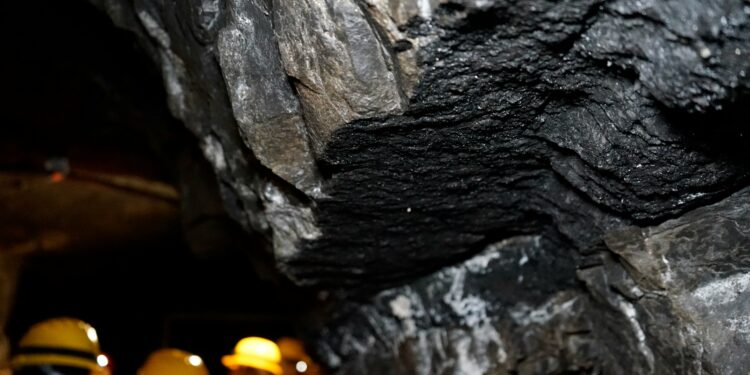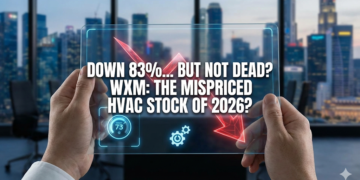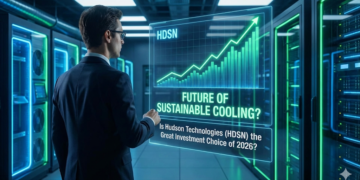TMC the Metals Company Inc. (NASDAQ:TMC) is a visionary deep-sea mining company at the forefront of one of the most revolutionary shifts in the global supply of energy-transition metals. Founded with the mission of unlocking access to the vast and largely untapped reserves of polymetallic nodules lying on the ocean floor, TMC is focused on harvesting critical minerals like nickel, cobalt, copper, and manganese—essential raw materials for electric vehicle batteries, renewable energy storage systems, and a wide range of green technologies. By developing breakthrough technologies that enable the responsible collection of these resources from the deep seabed, TMC is redefining how the world sources the metals that power a sustainable future.
Headquartered in Vancouver, Canada, with operations supported by subsidiaries in the U.S. and partnerships with Pacific island nations, TMC has quickly become the world’s most advanced deep-ocean mineral exploration company. At the heart of its operations is a vast resource zone in the Clarion-Clipperton Zone (CCZ) of the Pacific Ocean—a region estimated to contain more battery-grade metals in one small area than the world’s entire known land-based reserves. Through its partnerships with the government of Nauru and the International Seabed Authority (ISA), TMC has secured exploration and potential production rights to over 225,000 square kilometers of seabed, containing billions of tons of nodules rich in high-grade metal content.
What sets TMC apart from traditional mining companies is its commitment to creating an environmentally superior alternative to terrestrial mining. Unlike conventional methods that rely on deforestation, strip mining, and hazardous tailings, TMC’s nodule collection process requires no drilling or blasting, no displacement of ecosystems, and no use of freshwater. Instead, polymetallic nodules are gently collected from the seabed surface using engineered subsea vehicles and riser systems, minimizing habitat disruption and avoiding many of the toxic byproducts associated with land-based extraction. Early life cycle assessments have shown that the company’s planned operations could reduce the environmental impact of metal production by over 70% compared to traditional mining methods.
Since going public via a SPAC merger in 2021, TMC has attracted global attention for its bold approach, industry leadership, and first-mover advantage in a sector expected to become critical to energy independence and climate resilience. The company has already achieved significant milestones, including the successful pilot collection of over 3,000 metric tons of nodules during its initial offshore campaigns, as well as technical validation of its proprietary lifting and processing systems. These accomplishments mark a historic breakthrough in the field of deep-sea mineral recovery.
TMC’s strategy goes beyond simply mining nodules—it envisions a vertically integrated supply chain that can process, refine, and deliver battery-ready metals to global markets while meeting increasingly strict ESG requirements. With strategic partners like Korea Zinc now onboard, and with growing interest from governments looking to secure domestic sources of critical minerals, TMC is well-positioned to become a dominant force in the clean energy revolution.
As the world accelerates toward electrification, net-zero targets, and supply chain diversification, TMC the Metals Company stands out as a rare public-market opportunity to invest in a company that is not only building a new industry—but potentially reshaping the very foundation of how we power the planet.
TMC Stock Soars After Korea Zinc Places $85 Million Strategic Bet
Just this week, TMC sent a strong signal to investors and the broader mining sector with a landmark announcement: the company had raised $85.2 million in fresh capital through a strategic agreement with South Korea-based Korea Zinc. The news sent TMC stock soaring by 28.8% in a single trading day, closing at $5.59 per share. This surge marked one of the sharpest single-day gains in the company’s history and added further credibility to TMC’s ambitious vision.
Under the terms of the deal, Korea Zinc acquired 19.6 million shares at a premium price of $4.34 apiece. In addition to the equity purchase, the agreement includes a three-year warrant granting Korea Zinc the right to acquire an additional 6.9 million shares at $7.00 per share. Upon closing, which is expected by June 26, 2025, Korea Zinc will own approximately 5% of TMC’s outstanding common stock—instantly becoming one of the largest and most influential strategic shareholders of the company.
This investment goes far beyond a typical funding round. It represents a critical inflection point where industry leadership in refining and battery materials is putting capital behind a frontier mining strategy that only a few years ago was considered speculative. Korea Zinc, a global leader in non-ferrous metal refining and precursor cathode active material (pCAM) technology, is betting on the future of seafloor-sourced metals—and on TMC to deliver.

CHECK THIS OUT: MicroVision (MVIS): A Top Pick in Autonomous Tech Stocks and Innoviz (INVZ) May Be Severely Undervalued — Investors Shouldn’t Ignore This Stock.
Korea Zinc Partnership Unlocks Vertical Integration and U.S. Refining Ambitions
In addition to the capital infusion, the strategic partnership opens a broader horizon of industrial collaboration. Korea Zinc is actively evaluating a bulk sample of polymetallic nodules supplied by TMC USA under a current Letter of Intent (LOI). Its research and development team is now focused on validating processing and refining pathways to determine how TMC’s nodules can be efficiently converted into battery-grade metals. This includes examining synergies across the value chain—especially the potential for vertical integration that includes U.S.-based refining and even domestic pCAM manufacturing.
This has far-reaching implications. As the U.S. continues to seek energy independence and re-shore its critical mineral supply chains under programs like the Inflation Reduction Act and the Defense Production Act, TMC’s partnership with Korea Zinc may provide the industrial base to build refining capacity inside U.S. borders. Such a vertically integrated model—where nodules are collected in the Pacific and refined into battery inputs domestically—offers one of the most geopolitically resilient supply chains in the world. It directly addresses the core pain points of the current energy transition: environmental damage, labor exploitation, and foreign dependence.
Technological Validation and Operational Milestones Strengthen Investor Confidence
TMC’s progress isn’t just theoretical—it’s demonstrably real. The company has successfully harvested over 3,000 metric tons of polymetallic nodules from the deep-sea floor using its proprietary riser and collector system. These trial runs have established TMC as the only company to date to execute integrated pilot-scale nodule collection from over four kilometers beneath the ocean surface. This success validates the feasibility of its engineered systems and puts it years ahead of potential competitors still in the exploration phase.
Analysts believe that once commercial operations begin, possibly by 2026 pending final regulatory approvals, the NORI-D contract area alone could generate billions in economic value. According to third-party research firms, including Edison Group, this block could represent over $6 billion in total long-term valuation potential, especially if processed domestically with partners like Korea Zinc.
Environmental and ESG Advantages May Redefine Mining Standards
TMC’s value proposition doesn’t stop with raw materials and economic potential—it is deeply rooted in environmental sustainability. Multiple independent life cycle assessments show that harvesting polymetallic nodules from the deep sea results in 70% fewer carbon emissions, 94% less land disruption, and 100% less deforestation compared to land-based mining of the same metals. Furthermore, it avoids the use of freshwater and eliminates the need for toxic tailings ponds and open-pit excavation.
These ESG advantages may give TMC a significant edge as regulatory and investor priorities shift toward sustainability and social responsibility. With growing scrutiny on the ecological costs of mining, especially in jurisdictions with poor labor practices, TMC could emerge as a preferred supplier for automakers and clean energy companies that must meet stricter sourcing standards.
Regulatory Headwinds Exist, But TMC Is Strategically Positioned
The road ahead is not without obstacles. Environmental groups and some United Nations member states have called for a moratorium on deep-sea mining until more ecological data is gathered. The International Seabed Authority (ISA) has yet to finalize its mining code, and key permitting processes with the U.S. NOAA are still underway. However, TMC’s proactive engagement with regulators, its alignment with Nauru as a sponsoring state, and its growing industry partnerships place it in a uniquely strong position to lead once regulatory frameworks are finalized.
If the ISA delivers a viable framework for responsible seabed mining by the end of 2025, TMC could become the first public company legally permitted to harvest deep-ocean nodules at commercial scale. Given that global demand for battery materials is forecast to double or even triple by 2030, the first-mover advantage may be pivotal.
A Strategic Play in the Global Clean Energy Megatrend
The broader context for TMC’s rise is clear: the world is entering a historic phase of industrial transformation. Clean energy technologies require massive amounts of metal—resources that are becoming more difficult to obtain through traditional means. TMC’s strategy to supply these inputs via undersea resources aligns perfectly with this macro trend.
Its recent deal with Korea Zinc may be seen years from now as the turning point where deep-sea mining crossed from concept to industrial reality. With vertical integration on the table, U.S. refining prospects on the horizon, and billions in nodule value waiting beneath the waves, TMC offers bold investors an asymmetric opportunity at the frontier of mining and technology.
Conclusion: Why TMC May Be the Most Undervalued Clean Energy Resource Stock in the Market
TMC the Metals Company Inc. stands at the edge of a breakthrough moment in the mining and energy sectors. With a massive untapped resource base, operational validation, environmental advantages, and now a strategic global partner in Korea Zinc, the company has everything in place to transform from a speculative junior explorer into a vertically integrated, clean-tech critical mineral giant. Its stock may be volatile, and regulatory hurdles remain—but for those seeking exposure to the future of energy materials, TMC may offer a once-in-a-generation opportunity.
READ ALSO: Golden Matrix Group (GMGI): The Explosive iGaming Stock You’re Probably Sleeping On and This AI Stock Powers Millions of Conversations Daily—LivePerson (LPSN) Deserves a Spot on Your Watchlist.






